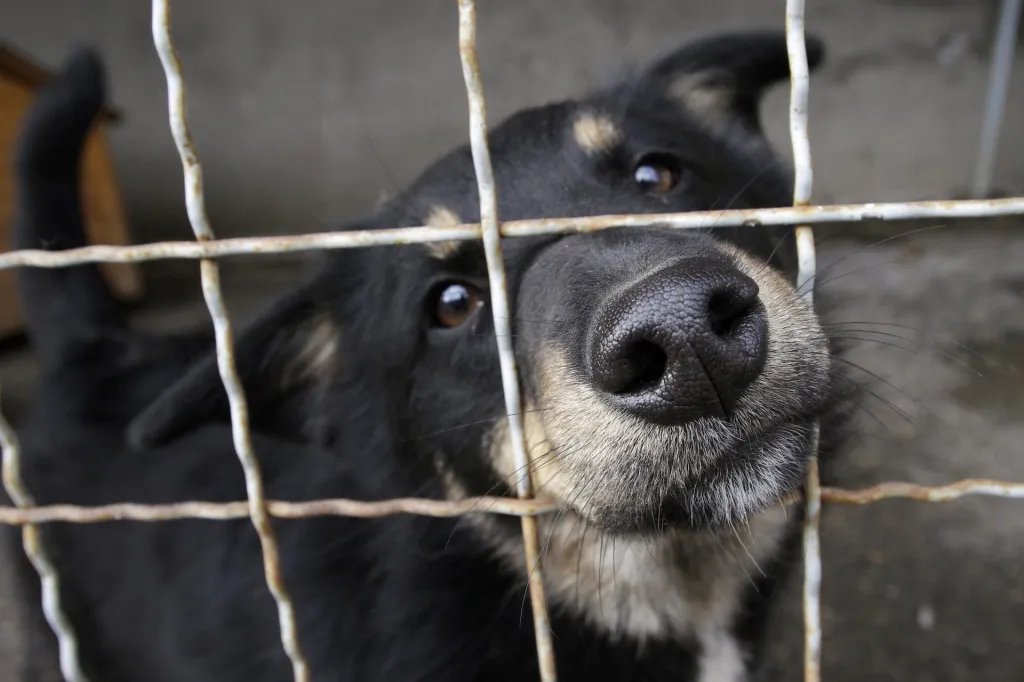Academic questions effectiveness of ‘tough’ new animal cruelty penalties
The amended Animal Welfare Act was passed by South Australia’s parliament in February, introducing “tougher penalties” for those who abuse and neglect animals. University of Adelaide associate professor Alexandra Whittaker wonders whether they will actually make a difference.

The amendments to the act include increased maximum penalties for individuals and corporations found guilty of animal cruelty in South Australia, with up to $250,000 in fines or 10 years’ imprisonment for individuals, and up to $1 million fine for corporations.
Deputy Premier Susan Close said “the new penalties provide a strong deterrent and will play an important role in reducing incidents of animal cruelty in South Australia”.
“Surveys and public consultation on the bill show South Australians have little tolerance for animal cruelty and they want strong deterrents,” she said.
The reforms have also created an Animal Welfare Fund, which will reinvest the licence fees and fines paid by offenders into the promotion of animal welfare.
This coincides with a 350 per cent increase in state government funding to the RSPCA, most of which will go towards the organisation’s enforcement of the new legislation.
You might like
The act also introduces a statutory duty of care for animal owners to provide adequate “food, water and living conditions”, and to take “reasonable and practicable measures to prevent or minimise harm” to their animals.
The amendment comes after a review into the state’s animal welfare legislation was opened in 2023, following a national assessment found South Australia had “the weakest legislated animal protections” in the country.
Associate professor Alexandra Whittaker from the School of Animal and Veterinary Sciences at the University of Adelaide found most of the amendments to the act “predictable”, but said the academic community was “surprised” at the increase in penalties.
“It’s a huge change…the [government] clearly set its mind to that change and it must have thought that was important – that sending the message was important,” she told InDaily.
Stay informed, daily
Whittaker, who specialises in animal welfare science and law, released a paper in 2018, suggesting that the previous amendments to the Act in 2008 which increased the maximum penalties and added an aggravated offence, “caused no significant change to the sentencing outcomes.”
Whittaker said that while the government’s attempt to toughen their stance on animal cruelty through the introduction of harsher penalties may symbolically act as a deterrent, she believes the judiciary will be slow to translate the legislation into harsher sentences in court.
“Whilst the judge will obviously read the maximum penalties in the act when they’re sentencing, they’re still bound by precedent. So, up until now, if they’ve been giving out four months for an offence, they’re probably not suddenly going to give five years for the same offence,” she said.
“Even four years, which was [in] the old Act, you know, that was hardly ever used. So, you know, the chances of ten years, I think, it’s certainly not going to happen overnight.”
Whittaker argues that rather than getting tougher through law reform, the government can “be a little more creative” around public education and awareness, prioritising prevention over response.
“That’s probably where I would be directing money to anyway, which is probably cheaper than taking things through the court system. It’s cheaper, it’s more, you know, timely and effective, probably,” she said.
Whittaker is pleased, however, that under the new laws, the legal “intervention point” is set earlier, allowing the RSPCA to intervene before an animal faces harm.
When asked what impact the act would have on everyday pet owners, Whittaker said that it would make minimal difference.
“Most of us assume we have a duty of care over our animals. And honestly, I think the legislation has always really assumed that, it’s just never called it that,” she said.
“I actually don’t think as a pet owner, things are going to change much unless they’re doing the wrong thing.”
The new act will become operational after the regulations pass, with work currently taking place to review SA’s Animal Welfare regulations, which will be open for external consultation.








